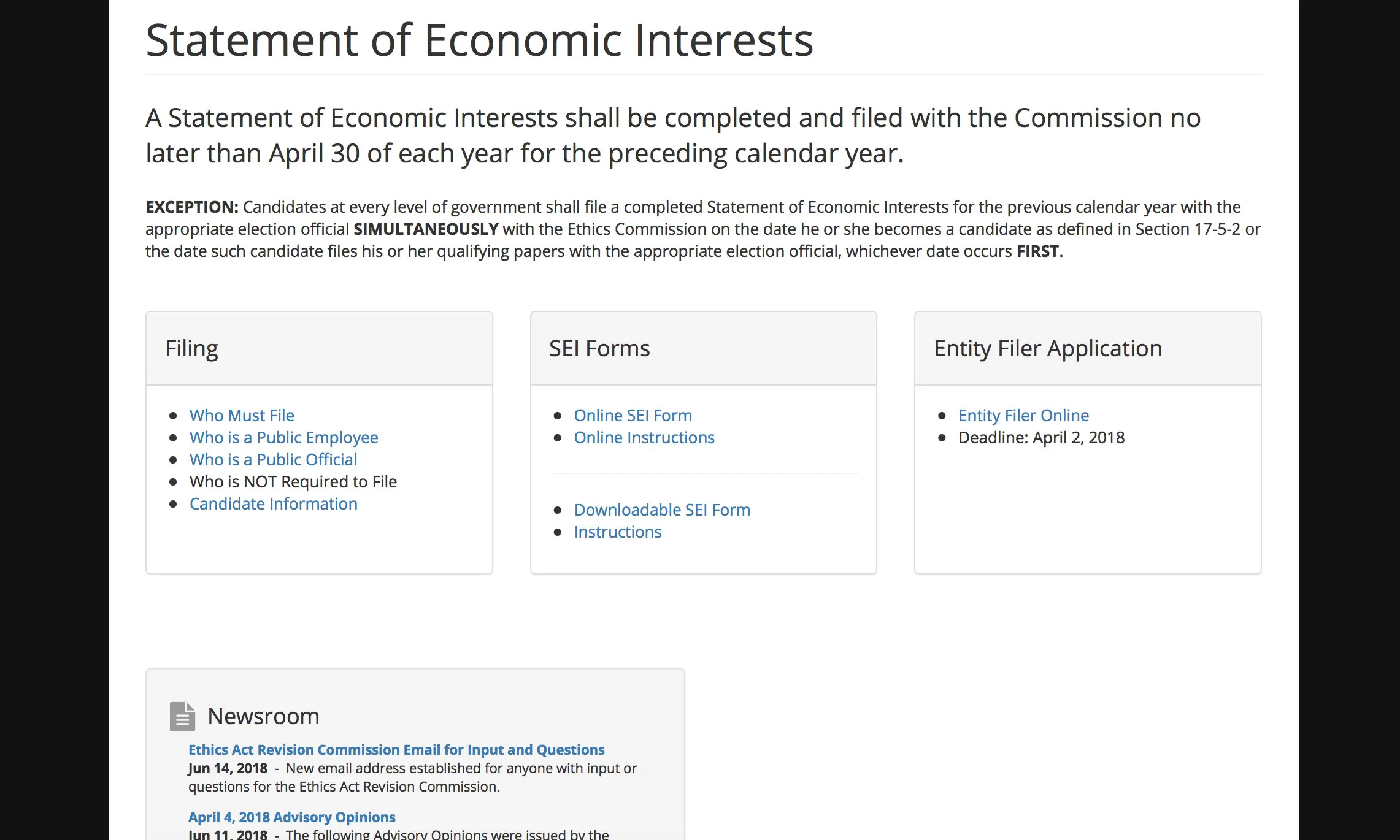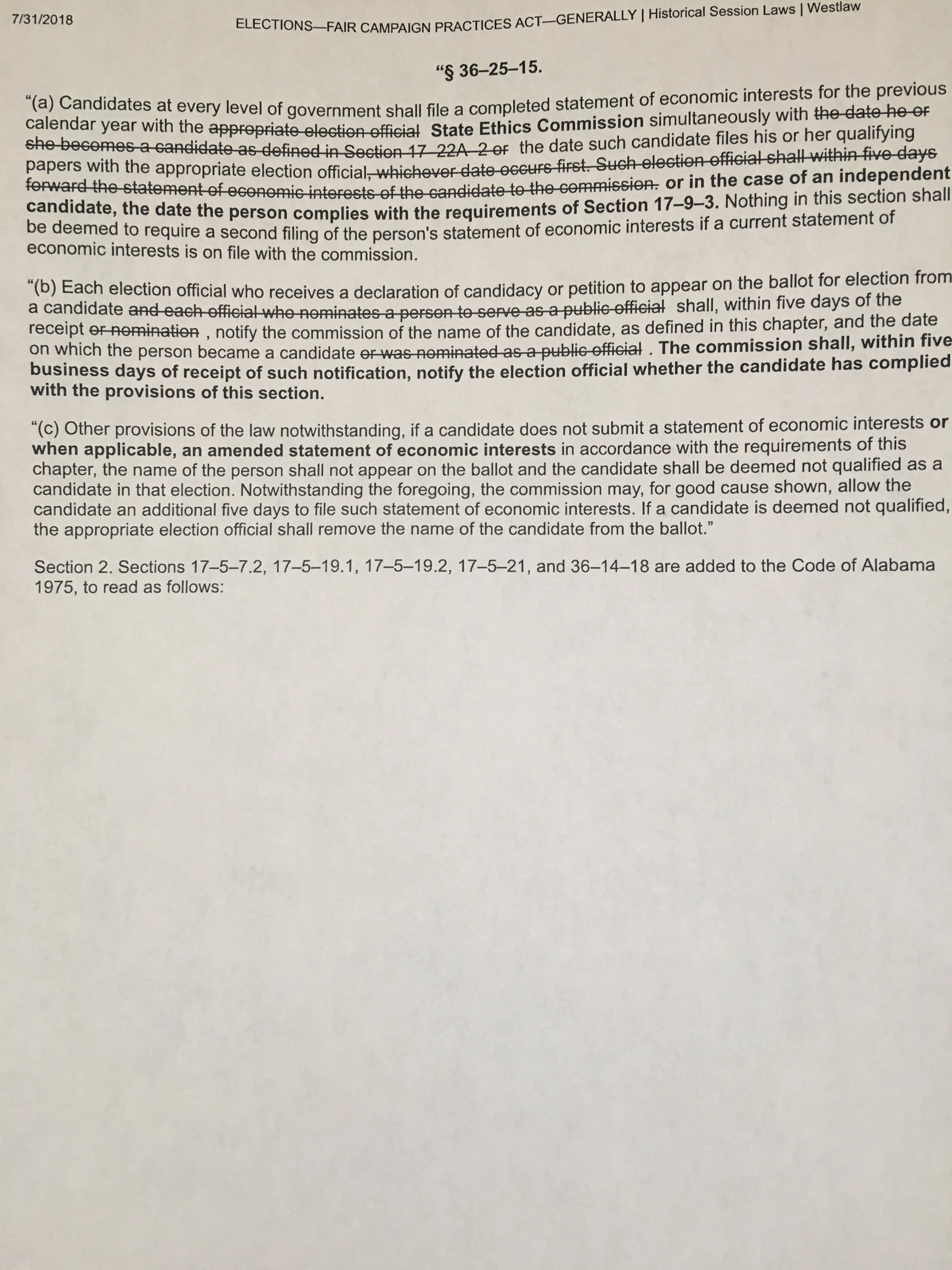In trying to understand if a candidate was compliant with state laws as it applies to when he or she must file their Statement of Economic Interests, APR relied on information provided on the state Ethics Commission’s website. However, that proved to be a poor assumption as the information provided on the website is wrong. After a day-long search, with at least 25 different conversations and emails, APR can now report there are problems.
The Ethics Commission’s site states,”Candidates at every level of government shall file a completed Statement of Economic Interests for the previous calendar year with the appropriate election official SIMULTANEOUSLY with the Ethics Commission on the date he or she becomes a candidate as defined in Section 17-5-2 or the date such candidate files his or her qualifying papers with the appropriate election official, whichever date occurs FIRST.”
See website screen capture.

The emphasis on SIMULTANEOUSLY and FIRST are added by the commission.
However, APR was informed by the Ethics Commission and the Secretary of State’s Office that the section of code printed on the commission’s website is outdated and was changed in 2015, under Act Number 2015-495, which was sponsored by Republican Sen. Arthur Orr.

The above mark-up was sent to APR from the Secretary of State’s Office.
Under existing statute, according to the Ethics Commission, “All candidates, simultaneously with the date he or she files his or her qualifying paper or qualifies as an independent candidate; (‘Nothing in this section shall be deemed to require a second filing of the person’s statement of economic interests if a current statement of economic interests is on file with the commission.)’ Ala. Code § 36-25- 15).”
According to the above guidelines supplied APR by the Ethics Commission Section 17-5-2 is not included.
Section 17-5-2 states in part that an individual who has, “Received contributions or made expenditures in excess of one thousand dollars ($1,000), or given his or her consent for any other person or persons to receive contributions or make expenditures in excess of one thousand dollars ($1,000), with a view to bringing about his or her nomination or election to any state office or local office.”
Is the one thousand dollar rule no longer in effect?
APR was told that these measures were taken by the State Legislature to further transparency.
It now seems a candidate can raise unlimited funds over a period of time and not file a Statement of Economic Interest until they qualify with their party. Also, the public will need to exercise blind faith that the parties will accurately record when an individual qualifies. Lastly, it difficult to know for sure if the entire process isn’t being manipulated to serve the interest of a few which is what APR was trying to determine in the first place.
If you are confused so are we.
APR spoke with five campaign strategists and two lawyers who were unaware of the changes made under Orr’s amendment.



















































